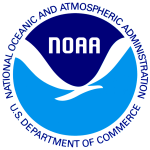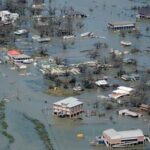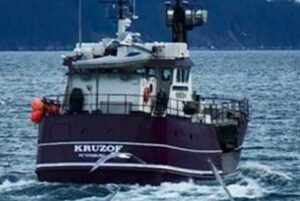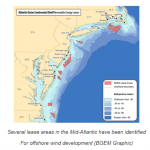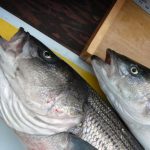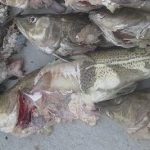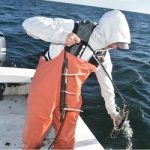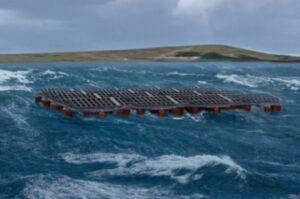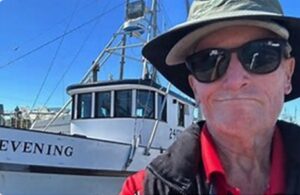Tag Archives: National Marine Fisheries Service
Environmental review of proposed Ambre Energy coal terminal should go deeper, The National Marine Fisheries Service says
![]() The National Marine Fisheries Service , which plays a consulting role in granting permits for the proposed Boardman terminal, has asked the Army Corps of Engineers bypass a speedier environmental assessment process. Instead, it wants the corps to prepare a full environmental impact statement, a more thorough process that would take years of additional study. A spokeswoman for Ambre Energy said Friday the company disagreed with the National Marine Fisheries Service’ findings. “We’re not pleased with and we don’t agree with the letter, but we’re following the corps’ process,” said Ambre spokeswoman Liz Fuller. “We think we should be going through an environmental assessment. Other projects of similar scope and size have gone through a similar environmental assessment. But we’re following directions at this point.” Read more
The National Marine Fisheries Service , which plays a consulting role in granting permits for the proposed Boardman terminal, has asked the Army Corps of Engineers bypass a speedier environmental assessment process. Instead, it wants the corps to prepare a full environmental impact statement, a more thorough process that would take years of additional study. A spokeswoman for Ambre Energy said Friday the company disagreed with the National Marine Fisheries Service’ findings. “We’re not pleased with and we don’t agree with the letter, but we’re following the corps’ process,” said Ambre spokeswoman Liz Fuller. “We think we should be going through an environmental assessment. Other projects of similar scope and size have gone through a similar environmental assessment. But we’re following directions at this point.” Read more
So theres this new petition floating around to Close the NMFS Northeast Regional Office!
Dear Chairwoman Mikulski and members of the Senate Committee on Appropriations:
On January 26, 2013, the Associated Press reported that John Bullard, the Northeast Regional Administrator for the National Marine Fisheries Service (NMFS), stated, “failures by fishery managers are ultimately to blame for weak stocks that haven’t rebounded.” The AP went on to quote Mr. Bullard as saying, “we set the rules and clearly the rules have failed. There’s no other conclusion.”
•We commend Mr. Bullard for his honest, direct and accurate description of the current reality.
Mr. Bullard also commented on changes in the workplace, “A plant shuts down. A person who’s worked there for 30 years all of the sudden goes to the factory door and it’s closed. You learn a new trade and you adapt…People adapt and they survive.” As fishermen, we are owners and employees of small businesses, and we fully understand the difficulties and pain that Mr. Bullard describes.
•We believe that just as there are consequences for failures in business, so too should there be consequences for failures in government. Read more Link to the Petition
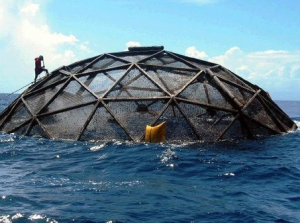
Gulf of Mexico fish farms move another step closer to reality
The Gulf of Mexico Fishery Management Council, which advises the National Oceanic and Atmospheric Administration’s National Marine Fisheries Service on fish and fishing in the Gulf, recently approved the final draft of its proposed rule to regulating offshore Gulf marine aquaculture. After some more federal review and an expected public comment period this summer, the idea is that sometime next year businesses could begin applying for permits to establish red snapper, grouper and other finfish-farms in Gulf federal waters, which in Louisiana extend from three to 200 miles offshore. Read more
Judge dismisses Humane Society lawsuit that opposed killing sea lions at Bonneville Dam
 A U.S. District Court judge in Oregon today dismissed the Humane Society of the United States’ challenge to the government’s plan to kill salmon-munching California sea lions at Bonneville Dam. Judge Michael Simon issued the 44-page opinion earlier today. The National Marine Fisheries Service “did not act arbitrarily or capriciously” when it re-authorized Oregon, Washington and Idaho’s ongoing program to kill sea lions, Simon wrote. The states first applied for lethal take in 2006, which led to on-and-off legal challenges. Read more
A U.S. District Court judge in Oregon today dismissed the Humane Society of the United States’ challenge to the government’s plan to kill salmon-munching California sea lions at Bonneville Dam. Judge Michael Simon issued the 44-page opinion earlier today. The National Marine Fisheries Service “did not act arbitrarily or capriciously” when it re-authorized Oregon, Washington and Idaho’s ongoing program to kill sea lions, Simon wrote. The states first applied for lethal take in 2006, which led to on-and-off legal challenges. Read more
UCIDA again sues over fed management of Cook Inlet salmon fishery
UCIDA and Cook Inlet Fishermen’s Fund are suing the National Marine Fisheries Service over the decision to transfer control of the fishery from federal to state control, saying the move violates the Magnuson-Stevens Act, the National Environmental Policy Act and the Administrative Procedure Act. Read more here
Phase II – Feds enter new phase of fishery rules probe

Inspector General Todd Zinnser
In a memo Monday, that office notified the top manager at the National Oceanic and Atmospheric Administration that it was beginning its review of ‘‘controls and processes’’ in a management system installed in 2010. The system established strict catch quotas for each species of bottom-dwelling groundfish in New England, and gave fishermen individual shares of those quotas. Fishermen then pooled their shares together in groups called sectors. Read more here
Probe cites wrongs by NOAA prosecutors
 In reviewing the case against Riley and Saludi, Swartwood wrote that, in seeking a $4.74 million penalty, Juliand and MacDonald intervened with a prospective buyer of their businesses; they also charged Riley and Saludi a penalty 17 times for a single allegation of “interference” with law enforcement — a charge that Swartwood dismissed as false. Once they learned of the potential sale, they immediately wrote up the huge penalty and contacted the buyer, actions Swartwood concluded involved “an intention to intimidate.” Underpinning the actions of NOAA’s agents and litigators was a long history and widespread knowledge that the U.S. Coast Guard administrative law judges would side with NOAA. Read more here
In reviewing the case against Riley and Saludi, Swartwood wrote that, in seeking a $4.74 million penalty, Juliand and MacDonald intervened with a prospective buyer of their businesses; they also charged Riley and Saludi a penalty 17 times for a single allegation of “interference” with law enforcement — a charge that Swartwood dismissed as false. Once they learned of the potential sale, they immediately wrote up the huge penalty and contacted the buyer, actions Swartwood concluded involved “an intention to intimidate.” Underpinning the actions of NOAA’s agents and litigators was a long history and widespread knowledge that the U.S. Coast Guard administrative law judges would side with NOAA. Read more here
On the brink: New fishing restrictions — Frustration, anger and perhaps end of an industry –
![]() John Bullard, regional administrator of the National Marine Fisheries Service and the National Oceanic and Atmospheric Administration, said an interim measure is only an allusion.“Fisherman don’t need allusions,” Bullard said. “They need a big dose of reality.” The interim action kept the fishery in business while addressing fish stock assessment numbers that were much lower than initially reported. Goethel said that discrepancy in stock assessment needs examination.“There should have been a real serious examination from outside the organization, not just from within,” he said. “We have to start looking for other underlying causes to this problem.” Read more here
John Bullard, regional administrator of the National Marine Fisheries Service and the National Oceanic and Atmospheric Administration, said an interim measure is only an allusion.“Fisherman don’t need allusions,” Bullard said. “They need a big dose of reality.” The interim action kept the fishery in business while addressing fish stock assessment numbers that were much lower than initially reported. Goethel said that discrepancy in stock assessment needs examination.“There should have been a real serious examination from outside the organization, not just from within,” he said. “We have to start looking for other underlying causes to this problem.” Read more here
Fishermen saw cuts coming
 When previous catch reductions have been rolled out by the New England Fishery Management Council, fishermen have reacted with some degree of anger. This time, though, the council’s announcement of a stiff drop in the allowable catch of cod and other groundfish has been met by many on the Cape with something else: resignation. Fisherman Greg Walinski of Dennisport was one who saw this coming, but he said there’s more to the problem than just overfishing. Read more
When previous catch reductions have been rolled out by the New England Fishery Management Council, fishermen have reacted with some degree of anger. This time, though, the council’s announcement of a stiff drop in the allowable catch of cod and other groundfish has been met by many on the Cape with something else: resignation. Fisherman Greg Walinski of Dennisport was one who saw this coming, but he said there’s more to the problem than just overfishing. Read more
‘The fish aren’t there’? Industry isn’t buying it
 But the fishing community continues to disbelieve the National Marine Fisheries Service when it says, in the voice of John Bullard, “The fish aren’t there.”
But the fishing community continues to disbelieve the National Marine Fisheries Service when it says, in the voice of John Bullard, “The fish aren’t there.”
The fish have moved, they insist. Too-warm water during mild winters drove them to colder water. But a cold winter such as this one could bring them back almost overnight. February and March will tell, with the coldest water.
And if that happens, there’s trouble, because under the strict limits set by the New England Fishery Management Council this week, the low quotas for Gulf of Maine cod cannot be revisited for three years without a complete stock assessment.
Editorial: Lawmakers must force NOAA’s hand on fisheries
 Yes, NOAA can show “scientific” data suggesting that these dire cuts — up to 77 percent for the Gulf of Maine cod catch – may be necessary. Yet, NOAA also had 2008 survey data that showed many of the cod stocks were already rebuilt. And remember that the latest data is off an assessment model that did not include any input from rank-and-file fishermen, meaning it’s no more credible than the admittedly bogus data used in the “Trawlgate” fiasco of 1999-2000, when NOAA conceded its statistics were hopelessly flawed, yet still used them to set stock limits. Read more
Yes, NOAA can show “scientific” data suggesting that these dire cuts — up to 77 percent for the Gulf of Maine cod catch – may be necessary. Yet, NOAA also had 2008 survey data that showed many of the cod stocks were already rebuilt. And remember that the latest data is off an assessment model that did not include any input from rank-and-file fishermen, meaning it’s no more credible than the admittedly bogus data used in the “Trawlgate” fiasco of 1999-2000, when NOAA conceded its statistics were hopelessly flawed, yet still used them to set stock limits. Read more
Letter: What does NOAAA suggest for fishermen? Captain Jim Ford, Gloucester
To the editor: This is an open letter to NOAA, northeast administrator John Bullard, and NOAA’s National Marine Fisheries Service: I am still in shock from Wednesday’s meeting. Read more
Drastic groundfishing cuts approved by fishery management agency
UPDATE… 6:27 PM Wed. New England Fisheries Management Council recommends cutting Cod fishing limits in the Gulf of Maine by 77% and in George’s Bank by 55%. This is critical, fisherman say, because catching cod leads to catching other fish like haddock. They say the cuts are devastating. Watch video
NH Candidates Sought/New England Fishery Management Council – Feb. 5
New Quotas Announced for Mackerel and Butterfish Fisheries – National Marine Fisheries Service,
 er and obtain their full longfin squid allocation. The Atlantic mackerel quota is unchanged from 2012 and is being implemented for 3 years, from 2013 through 2015
er and obtain their full longfin squid allocation. The Atlantic mackerel quota is unchanged from 2012 and is being implemented for 3 years, from 2013 through 2015National Marine Fisheries Service seeks input on coral protection
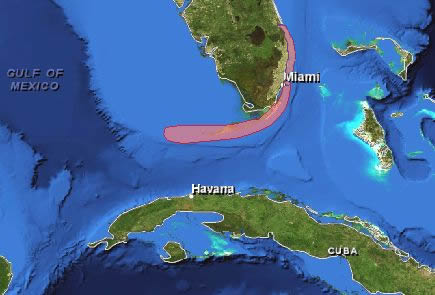 The proposal came in response to a petition from the Center for Biological Diversity, an environmental group seeking to extend endangered species protection to additional animals. “We really do have a coral reef crisis on our hands,” said Miyoko Sakashita, senior attorney and oceans director at the center. “The scientists are telling us coral reefs could very well disappear within our lifetimes.” Read more
The proposal came in response to a petition from the Center for Biological Diversity, an environmental group seeking to extend endangered species protection to additional animals. “We really do have a coral reef crisis on our hands,” said Miyoko Sakashita, senior attorney and oceans director at the center. “The scientists are telling us coral reefs could very well disappear within our lifetimes.” Read more
Guest View: The end of “overfishing”? By Dr.Brian J. Rothschild (new england trusted)
Brian J. Rothschild is the Montgomery Charter professor of Marine Science and Technology at the UMass Dartmouth School for Marine Science and Technology.
The necessity of imposing the cuts is not clear. The council’s scientific committee has had difficulties reaching consensus on the management of key stocks. The Council is faced with a dilemma. If the stocks are down and the cuts are necessary, how do we mitigate the impact of the cuts on the people who work in the fishing industry and fishing communities, and then how do we plan for the future? At the same time, if the stocks are not down and the cuts are not necessary, how do we promote stability within the fishing industry and fishing communities, and then how do we plan for the future?
To understand the council’s short- and long-range plans on how to deal with its dilemma is crucial, particularly since the condition of the groundfish stocks may not be as bad as it seems. Read More
Catch Shares for Central Gulf of Alaska Trawl Groundfish Fisheries? Control Date December 31, 2012, for Qualifying Landings
 The National Marine Fisheries Service published its intention to work on rationalization for central Gulf of Alaska trawl groundfish fisheries in the federal register Dec. 26. The Dec. 31 control date was set by the North Pacific Fishery Management Council. As the council considers a catch share program for the central Gulf of Alaska, the date will be used to determine catch history. The council has discussed rationalizing the fishery to slow down the fishery and better enable the trawl fleet to minimize bycatch. Read the Register. Alaska Journal
The National Marine Fisheries Service published its intention to work on rationalization for central Gulf of Alaska trawl groundfish fisheries in the federal register Dec. 26. The Dec. 31 control date was set by the North Pacific Fishery Management Council. As the council considers a catch share program for the central Gulf of Alaska, the date will be used to determine catch history. The council has discussed rationalizing the fishery to slow down the fishery and better enable the trawl fleet to minimize bycatch. Read the Register. Alaska Journal
The Kiss of Death!
Closed Areas need fed’s OK to open
 The New England Fishery Management Council has voted to recommend giving commercial groundfishermen access to parts of five areas that have been closed to them for many years. The request to open closed areas to commercial fishing came days before the NOAA Science Center issued a report on the 2011 fishing year that contained the revelation that only 41 percent of allocated fish were landed in 2011. Read More
The New England Fishery Management Council has voted to recommend giving commercial groundfishermen access to parts of five areas that have been closed to them for many years. The request to open closed areas to commercial fishing came days before the NOAA Science Center issued a report on the 2011 fishing year that contained the revelation that only 41 percent of allocated fish were landed in 2011. Read More
Challenges abound for Florida Keys commercial fishermen
A limit instituted for yellowtail snapper created a considerable amount of drama for Keys commercial fishermen, as the commercial fishery was poised to close in the Atlantic Ocean in September but analysis showed the fishing stock was stronger than originally thought and the season remained open. National Marine Fisheries Service announced in August that the annual commercial yellowtail quota in the Atlantic had nearly been reached, and that the fishery would be closed Sept. 11 through Jan. 1. The Science and Statistical Committee for the Gulf of Mexico and South Atlantic fishery management councils recommended, federal fishery managers agreed, to an annual commercial harvest of yellowtail snapper that increased the yield from 2.9 million pounds to 4.1 million pounds. Read More
was stronger than originally thought and the season remained open. National Marine Fisheries Service announced in August that the annual commercial yellowtail quota in the Atlantic had nearly been reached, and that the fishery would be closed Sept. 11 through Jan. 1. The Science and Statistical Committee for the Gulf of Mexico and South Atlantic fishery management councils recommended, federal fishery managers agreed, to an annual commercial harvest of yellowtail snapper that increased the yield from 2.9 million pounds to 4.1 million pounds. Read More
Your View: Fishery council must reject unreliable assessments – By Richard Canastra – southcoasttoday
I nearly always attend New England Fishery Management Council meetings in person, but last month, I was unable to attend the meeting in Newport, and instead listened to the proceedings online. I found that listening, and not physically being there, gives you a different perspective on a meeting. You hear more intently. There are fewer distractions. Examples seem clearer. Patterns emerge. There are some predictable patterns in life. When there is an accident, at the end of the traffic jam you find a police officer. When you go to a restaurant, at the end of dinner the bill comes. And when you attend a fisheries management council meeting that is dealing with a crisis, there is usually a bad stock assessment.
Bad stock assessments have become as predictable as the sunrise. Read More
Share and Share Alike
As a citizen advocate of the fishing industry, I have no confidence in NOAA stock assessments.
I spend a lot of time reviewing material, attempting to convey the results to as many people possible.
These listening sessions allow, as Mr Canastra stated, patterns to emerge.
The patter of Bill Karp, and Sam Rauch deviates not from the typical bureaucratic structure, much to my disappointment after listening to them from various venues, and reading a lot of information.
The revelations of the Georges Bank Yellowtail Flounder Working Group Meeting May 23, 2012, are the foundation of my opinion to condemn the stock assessments as a tool for fishery management, while enforcing Mr Canastras belief that the proper equipment is not being utilized to sample yellow tail flounder abundance.
As stated, patterns have emerged. The pattern of over looking details that have detrimental affects on stock assessments and confidence in them.
At the The New England Fishery Management Council’s three-day meeting in Plymouth Ma on 9/25/2012, a major detail confirmed the retrospective patter of no confidence in stock assessments conducted by NOAA.
During the 54th Stock Assessment Workshop (SAW)/Stock Assessment Review Committee (SARC) Meetings, a fisherman asked a question that received a hollow shrug of the shoulders answer that I find alarming, and telling that these assessments are substandard and incomplete.
The question was, “why is there no mention of herring as a predator species” in the ground fish assessment?
The answer. ” The SSC was, ah, not presented, ah, ah herring as a, ah, predator species….”
Yes. A Retrospective Pattern of the science used to mismanage this industry is established.
No confidence.
Predator, prey balance needed in fisheries management Carmine Gorga, Ph.D.
To the editor:
Congratulations to Matt Mullin, deputy regional director, New England Oceans Program, Environmental Defense Fund! He is the first member of the fisheries “establishment” who has publicly admitted to the need to account for the “predator and prey balance” (Letter, the Times, Nov, 14). This is a very important communication.
There is now hope that sooner or later even the National Oceanic and Atmospheric Administration and its National Marine Fisheries Service will eventually look at stocks of fish as existing in a web of interrelationships with each other, rather than in linear formation as they were depicted in ancient biology books. There is now hope that overfishing will no longer be attributed to the pitiful family fishing fleet!
Just imagine a world in which NOAA and NMFS acknowledge their boundaries, a world in which they leave the family fishing fleet alone. A world in which they get up the gumption to go after the large, often subsidized, national and international corporations, at times culprits for the devastation of the fisheries. Just imagine a world in which NOAA and NMFS call for a balanced management of pelagics (mid-water fish) and bottom fish!
Carmine Gorga, Ph.D.
Middle Street,
Gloucester
Ninth Circuit Hears Steller Sea Lion Appeal – Unalaska Community Broadcasting – KUCB 89.7 FM – Channel 8
For years and years, a legal battle has been raging over the endangered western stock of Steller sea lions. That battle finally made its way to the Ninth Circuit Court of Appeals this week. The State of Alaska and the Freezer Longline Coalition petitioned to overturn a lower court ruling that said the National Marine Fisheries Service was justified in restricting fishing in order to protect the sea lions. http://kucb.org/news/article/ninth-circuit-hears-steller-sea-lion-appeal/






 SEAFOOD.COM NEWS by John Sackton (Editorial Comment) – June 15, 2011 A
SEAFOOD.COM NEWS by John Sackton (Editorial Comment) – June 15, 2011 A




























